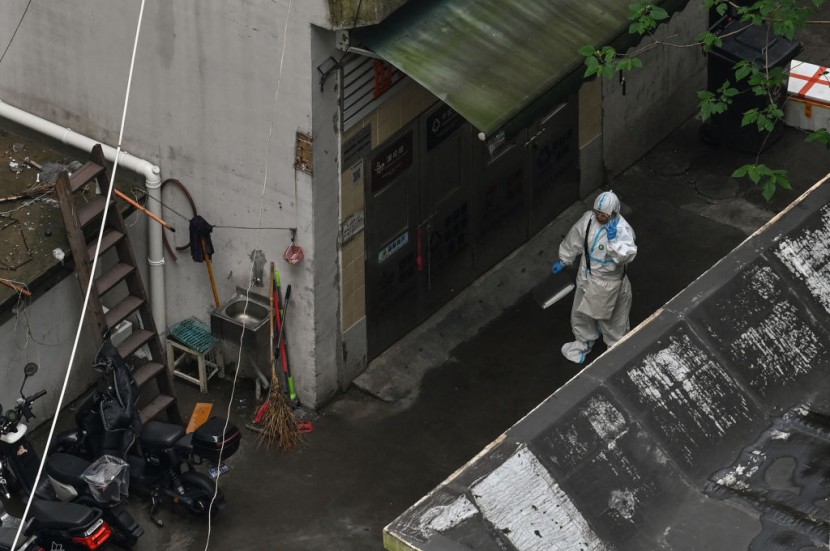
Shanghai local government takes its lockdown measures to another level by setting up barricades outside residential buildings identified with COVID-19 cases, fuelling another public outcry.
Photos of personnel wearing white hazmat sealing residential structures and setting up blockades on streets with roughly two meter-tall green fencing went viral on social media on Saturday.
The images were criticized by residents. On a social media platform, one user said the move is "so disrespectful of the rights of the people inside" as if the government is treating them "like domestic animals."
Residents shouted at workers erecting fencing from their balconies in one video, but they eventually yielded and took them away. Other recordings showed individuals attempting to tear down the barriers, which some consider "a fire hazard."
The majority of the barricades seemed to have been installed around "sealed areas," with buildings dwelled by at least one individual positive for COVID-19, and whose tenants are not allowed to exit their doors.
It was unclear what caused authorities to put up barriers, but a notice posted online on Saturday from one local authority indicated it was enforcing a "strict quarantine" on specific regions.
The validity of the photographs, videos, and notifications could not be verified, as Reuters said in its report. Shanghai officials have not yet answered the request for response sent by the media outlet.
Chinese Authorites Try To Censor Online Complaints
A viral clip depicting the impact of Shanghai's five-week lockdown on its citizens is being blocked by Chinese internet authorities.
The six-minute video clip highlights audio recordings of citizens complaining about the dire situation they are experiencing, including the lack of access to food and medical service.
The Chinese government's efforts to eliminate the content online have sparked backlash on Chinese websites, according to a report from BBC.
"This virus can't kill us. Starvation can," one person in the clip said.
The video, named The Voice of April, was widely shared on Weibo and WeChat, two major Chinese social networking sites.
However, on Saturday, web officials began attempting to take it down, contending with furious users who were uploading new copies to other platforms.
Read Also: China Plans To Build Future Helicopters With More Advanced Technologies Than Super Choppers Built by the US
Omicron: A Big Challenge To China's COVID-19 Strategy
Shanghai, China's largest metropolis and commercial capital, is fighting the country's largest-ever Covid-19 outbreak with a policy that requires all positive cases to be sent to central quarantine facilities.
The lockdown has sparked anger about issues securing food and medical assistance, Locals also complain of lost earnings, family separation, conditions at quarantine centers, and suppression of protests online, per NBC News.
Following the initial outbreak in Wuhan in late 2019, China generally succeeded in keeping Covid-19 at bay by implementing a "dynamic zero" policy aimed at eradicating all transmission possibilities.
The emergence of the highly contagious but less lethal omicron strain has posed a challenge to this method, prompting a slew of towns to implement varying levels of mobility restrictions, severely stifling the economy.
China reported 20,285 new asymptomatic coronavirus infections on April 23, down from 21,423 the day before, and 1,580 symptomatic cases, down from 2,988 the day before.
In Beijing, there were 22 new Covid-19 cases, all of which were locally transmitted.








